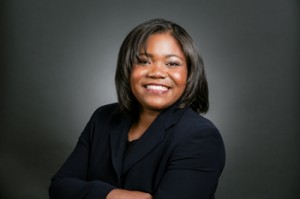Dr. Corey Toler-Franklin
Corey Toler-Franklin is an Assistant Professor in the Computer Science Department at Barnard College, Columbia University where she directs the Graphics, Imaging & Light Measurement Laboratory. She obtained a Ph.D. in computer science from Princeton University, an M.S. degree from the Cornell University Program of Computer Graphics, and a B. Arch. degree from the Cornell University College of Architecture, Art, and Planning. She also holds affiliate positions at the American Museum of Natural History and the Florida Museum of Natural History.
Prior to joining the faculty at Barnard College, Columbia University, Toler-Franklin was an assistant professor of computer science at the University of Florida. Toler-Franklin was a UC President’s Postdoctoral Fellow at UC Davis and a research affiliate at the UC Berkeley. CITRIS Banatao Institute. She has also held industry positions at Autodesk, Adobe and Google.
Dr. Toler-Franklin’s research in computer graphics and vision includes Machine Learning, Data Acquisition, Appearance Modeling, Imaging Spectroscopy and Non-Photorealistic Rendering, with real- world applications in Biodiversity, Bio-Medical Research and Archaeology. Her algorithms use mathematical principles in optics to capture and analyze the shape and appearance of complex materials. Her recent work develops AI algorithms for biomedical research. Collaborating with the experts in oncology, pathology neuroscience, Dr. Toler-Franklin developed deep learning algorithms for diagnosing metastatic cancers and studying behaviors associated with neurological disorders (Alzheimer’s, autism, depression).
Dr. Toler-Franklin’s Ph.D. work focused on the acquisition and analysis of the shape and appearance of complex real-world objects. Her data acquisition pipeline and multi-feature matching system is used today by archaeologists at the Akrotiri Excavation Laboratory of Wall paintings in Santorini Greece to reconstruct the Theran Frescoes. Her work has fostered international collaborations with researchers in the fields of paleontology, archaeology, museum conservation and biological imaging. Dr. Toler-Franklin was awarded the 2013 NSF iDigBio Visiting Scholar Award to support projects developing new optical capture techniques and image processing algorithms to analyze biological specimens from rare collections at the American Museum of Natural History Vertebrate Paleontology and Mammalogy collections and the Duke University Lemur Center, Fossil Primates Division.
Dr. Toler-Franklin’s M.S. thesis project leveraged new hardware technology to develop a software system for improving computer-assisted architectural design. Her MS thesis, A Computer-Based Approach to Teaching Architectural Drawing, was introduced into the classroom for undergraduates at Cornell and received the Shreve Award for excellence and originality. Her undergraduate thesis design project was An On-site Museum of Oral History, in Nassau, Bahamas. She was awarded The Eschweiler Prize for outstanding academic accomplishments.
After leaving Cornell, Dr. Toler-Franklin spent several years working in industry. As a Software Engineer on the 3D Graphics Team at Autodesk, in San Francisco, CA, she was responsible for implementing platform enhancements to the 3D Graphics System of AutoCAD. Dr. Toler-Franklin was awarded the Autodesk 2002 Software Developer Award for her contribution to AutoCAD 2002. While at Autodesk, Dr. Toler-Franklin had a unique opportunity to create and lead a pilot project between Autodesk and two international architecture firms, HOK and Gensler. She worked with executives within the architecture firms and Autodesk to encourage the adoption of new technologies and to improve software solutions for design industries.
In 2005, Dr. Toler-Franklin received the National Science Foundation (NSF) Graduate Research Fellowship to pursue her doctoral studies. She was also awarded the Presidential Fellowship, from Princeton University and a Merit Award from the Computer Science Department at Princeton. In 2011, Dr. Toler-Franklin became the first African American to receive a Ph.D. in computer science from Princeton University.



